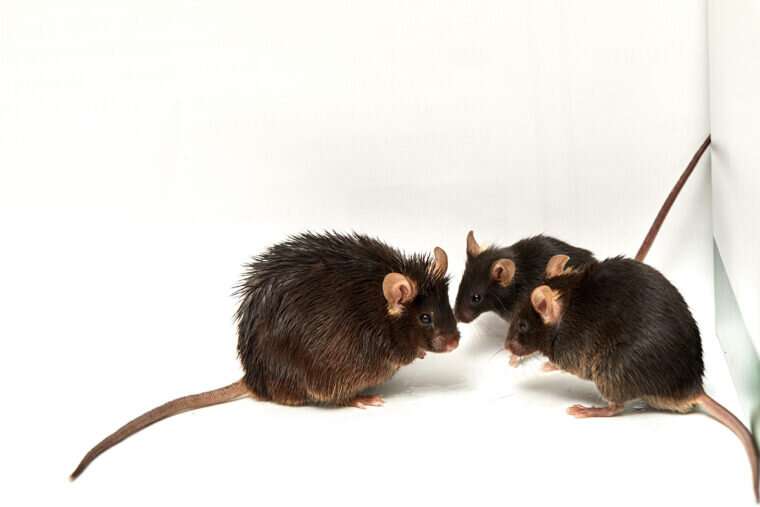Arthritis risk linked to obesity may be passed down through generations

Arthritis affects one in five Americans, but according to the Centers for Disease Control and Prevention, that number jumps to one in three among people with obesity. Now, new research from Washington University School of Medicine in St. Louis suggests obesity may increase arthritis risk not only in obese people but in their children and grandchildren, too.
Studying mice that became obese after being fed a high-fat diet, the research team found that the animals had an elevated risk for osteoarthritis, a condition that causes cartilage in the joints to break down and is the most common type of arthritis.
Surprisingly, they also found that the mice's offspring, even when fed a diet lower in fat, tended to gain nearly 20% more weight than the offspring of their littermates that had never been overweight. In addition, they were at higher risk for arthritis. The same was true for the next generation of mice as well, which gained up to 10% more weight.
The study is published online Oct. 24 in the journal Arthritis & Rheumatology.
"This study tells us that environmental factors can influence how genes behave and influence the risk for arthritis for multiple generations," said senior investigator Farshid Guilak, professor of orthopedic surgery. "Arthritis prevalence is affecting many more people than it used to, more than 250 million people worldwide, and these findings suggest that obesity may help explain why the disorder is becoming so much more common."
Guilak and his team analyzed more than 120 mice whose parents had consumed a high-fat diet. The researchers found that the offspring—despite having eaten a low-fat diet—were significantly heavier and had more body fat than the offspring of mice that hadn't consumed a high-fat diet.
Then, when those mice had pups—the grandchildren of the original mice—that third generation of mice also had higher levels of inflammatory molecules and cells in their systems than their littermates, despite never having been fed a high-fat diet. Higher amounts of those molecules, called cytokines, are linked to a variety of problems, including arthritis. In fact, the third-generation mice had higher levels of molecules that cause inflammation, and lower levels of molecules that protect against inflammation. The children and grandchildren of the obese mice in the study also were more likely to have bone and cartilage changes that put them at risk for osteoarthritis.
"We can't assume everything we found in these mice will turn out to be true for people," said first author Natalia S. Harasymowicz, PhD, a postdoctoral fellow in Guilak's lab. "But there's more and more evidence that when parents eat a bad diet or smoke or abuse alcohol, the next generation is more likely to inherit a predisposition for diabetes, cancer or other diseases. Here, we've shown the same appears to be true for arthritis."
Guilak, who also is director of research at Shriners Hospitals for Children—St. Louis, said that in the past, scientists had assumed that the relationship between obesity and osteoarthritis was a mechanical one: More weight puts stress on joints, eventually leading to the pain and stiffness of arthritis.
"We've known for years that obesity is the No. 1 preventable risk factor for osteoarthritis," Guilak said. "It turns out, however, that obesity also increases arthritis risk in body parts that don't bear weight, like the hand or the thumb."
Guilak's lab has determined that inflammation plays a much more important role.
"What we find is that changes in mechanical loading that occur with obesity don't seem to be the primary risk factors for arthritis," he said. "Almost all of the risk is coming from either metabolic or dietary influences, and that risk is then passed down to subsequent generations."
The animal's genetic makeup doesn't change to cause increased risk of arthritis. Rather, scientists refer to the changes as epigenetic, meaning that behavior—in this case, consuming a high-fat diet—changes the way genes work. It's those changes that are passed on.
"Poor diet and bad habits may affect not only the individual who has such habits but also future generations," Harasymowicz said. "However, recognizing that potential risk may convince people to take steps to be healthier and to reduce their weight, potentially lowering risks for their children and grandchildren."
More information: Intergenerational transmission of diet‐induced obesity, metabolic imbalance, and osteoarthritis in mice. Arthritis & Rheumatology, doi.org/10.1002/art.41147


















